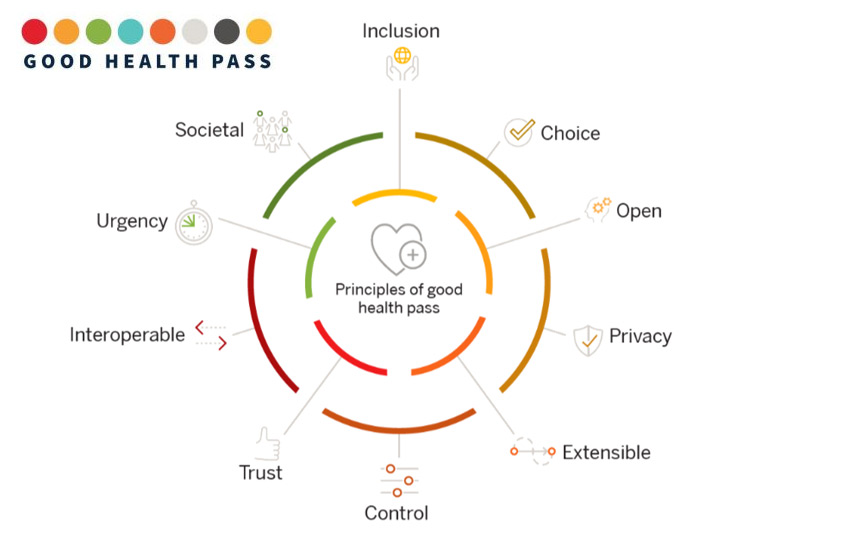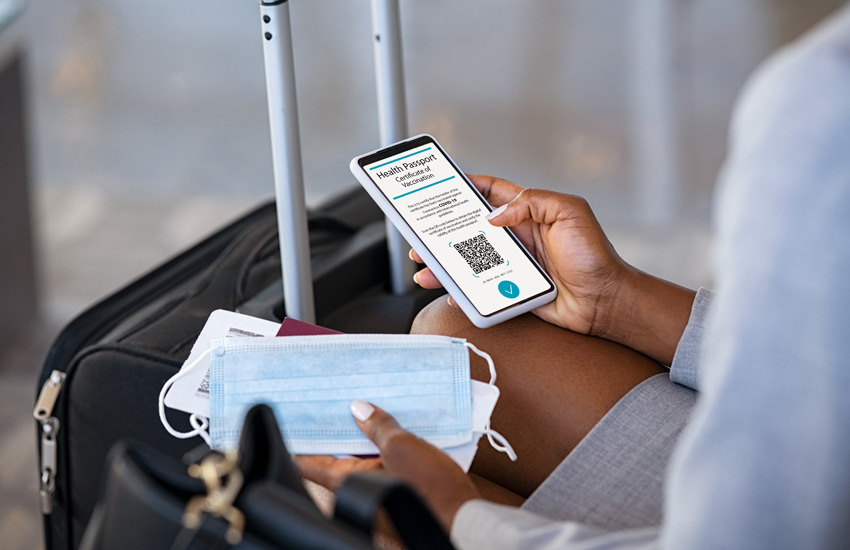Today the Good Health Pass Collaborative (GHPC) unveiled its Blueprint to enable interoperability between the various COVID-19 digital health certificates and credentials being issued to enable travel. The GHPC was founded in February by ID2020 and is a collaborative of more than 125 organizations, including IBM, Hyperledger, The International Chamber of Commerce, Mastercard, and SITA.
Imagine you work at the check-in for an international airline and all the different formats of COVID-19 vaccine or health certificates you’re expected to process. How do you have time to check whether each one is a counterfeit or not? That ease of copying a paper certificate is one of the reasons for the development of digital health passes, which can be verified and also issued in paper form.
A lack of interoperability between digital passes presents massive risks. There are life and death issues with COVID-19. As tourists travel around the world, if the test certificate is fake, they can spread the virus further and extend its duration with the associated loss of life.
But there’s also a longer term issue at stake: the future of privacy.
One of the promises of decentralized identity is to put data back under the control of individuals and take it away from centralized databases. Prior to COVID-19, only a limited number of decentralized identity applications have gone live. In the rush to deal with COVID-19, there’s a natural tendency to take shortcuts.
And those shortcuts could become the template for a myriad of future decentralized identity applications unrelated to health.
Hence the Blueprint outlines a privacy-centric approach. When data is exchanged between the traveler and the organization receiving it, there should be no third party tracking it. In terms of the data communicated, it should be the minimal possible details. And it should be completely transparent how the data will be used. An individual should be able to choose what data to share and with whom.
Apart from these privacy features, a pass that adheres to the blueprint should be hard to falsify or lose and automatically verified when presented, without anyone else being aware of that verification.
One of ID2020’s drivers is inclusion. So the Good Health Pass initiative does not believe in requiring a vaccination, especially as they are only currently available to a minority of the world’s population.
“The standards proposed in the Good Health Pass Interoperability Blueprint will make it possible for digital health pass systems around the world to be interoperable with one another, thus creating a trusted, convenient, and seamless experience for travellers as well as for airlines, airports, and border control agencies,” said ID2020 executive director, Dakota Gruener.







